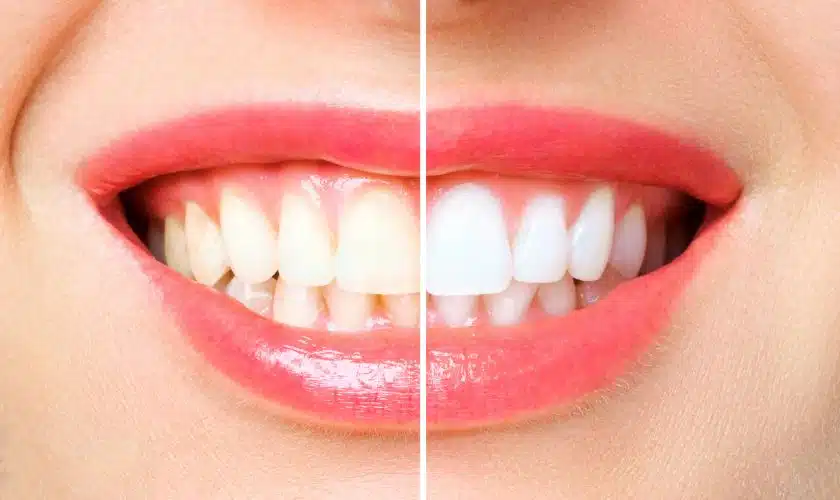
A bright, healthy smile is not only aesthetically pleasing but also crucial for overall well-being. Dental care is an essential aspect of maintaining good oral health, preventing dental issues, and preserving your smile for years to come. Looking for an affordable Peoria dentist? Visit Affordable Peoria Dentist for quality dental care that fits your budget and keeps your smile healthy and bright. In this comprehensive guide, we’ll delve into the fundamentals of dental care, covering everything from daily oral hygiene practices to professional dental treatments.
Daily Oral Hygiene Routine
Brushing: Brush your teeth at least twice a day using fluoride toothpaste and a soft-bristled toothbrush. Brush in gentle, circular motions to remove plaque and debris effectively.
Flossing: Floss daily to clean between teeth and along the gumline, where toothbrush bristles may not reach. Proper flossing helps prevent cavities and gum disease.
Mouthwash: Rinse with an antimicrobial mouthwash to reduce plaque, freshen breath, and maintain oral hygiene. Look for products containing fluoride for added protection against cavities.
Tongue Cleaning: Don’t forget to gently clean your tongue as it harbors bacteria that can contribute to bad breath and oral health problems.
Healthy Dietary Habits
Limit Sugary Foods and Beverages: Sugary foods and drinks contribute to tooth decay. Limit your intake of sugary snacks and beverages, and opt for water or unsweetened beverages whenever possible.
Eat a Balanced Diet: Consume a diet rich in fruits, vegetables, lean proteins, and whole grains. These foods provide essential nutrients for strong teeth and gums.
Regular Dental Check-ups
Schedule dental check-ups and cleanings every six months or as recommended by your dentist. Regular visits allow your dentist to detect any dental issues early and provide appropriate treatment.
Discuss any concerns or changes in your oral health with your dentist promptly.
Protective Measures
Mouthguards: If you participate in sports or grind your teeth at night, consider wearing a mouthguard to protect your teeth from injury and damage.
Fluoride Treatments: Fluoride helps strengthen tooth enamel, making it more resistant to decay. Your dentist may recommend fluoride treatments for added protection.
Avoid Harmful Habits
Smoking and Tobacco Use: Quit smoking and avoid tobacco products, as they increase the risk of gum disease, tooth loss, and oral cancer.
Nail Biting and Teeth Grinding: These habits can cause tooth damage and jaw pain. Try to find alternative ways to manage stress and break these habits.
Emergency Preparedness
Have a plan in place for dental emergencies, such as a knocked-out tooth or severe toothache. Contact your dentist immediately for guidance and treatment.
Specialized Dental Care
Depending on your oral health needs, your dentist may recommend specialized treatments such as orthodontics, dental implants, or oral surgery. Follow your dentist’s advice for optimal results.
Maintaining Oral Health at Home
In addition to regular dental visits, continue practicing good oral hygiene habits at home. Consistency is key to maintaining a healthy smile.
Dental Care for Children
Start dental care early by gently wiping your baby’s gums with a clean, damp cloth after feedings. Once teeth erupt, begin brushing with a soft-bristled toothbrush and a smear of fluoride toothpaste.
Schedule your child’s first dental visit by their first birthday or as soon as their first tooth appears. Early dental visits help establish good oral health habits and allow the dentist to monitor development.
Special Considerations for Seniors
As we age, oral health needs may change. Seniors may experience dry mouth, gum recession, and tooth sensitivity.
Maintain regular dental check-ups and discuss any concerns with your dentist, such as changes in oral health or medications that may affect dental health.
Managing Dental Anxiety
Dental anxiety is common and can prevent individuals from seeking necessary dental care. Openly communicate with your dentist about any fears or concerns you may have.
Consider relaxation techniques, such as deep breathing or listening to music, to help manage anxiety during dental appointments.
Cosmetic Dentistry
Cosmetic dentistry focuses on improving the appearance of teeth and smile. Treatments may include teeth whitening, veneers, dental bonding, or smile makeovers.
Consult with a cosmetic dentist to explore options for enhancing your smile and boosting confidence.
Preventing Dental Emergencies
While some dental emergencies are unavoidable, taking preventive measures can reduce the risk of accidents and injuries.
Avoid chewing on hard objects, such as ice or pencils, and refrain from using teeth as tools for opening packages or bottles.
Environmental Impact of Dental Care
Consider eco-friendly oral hygiene products, such as bamboo toothbrushes or biodegradable dental floss, to reduce environmental impact.
Practice water conservation by turning off the tap while brushing and using minimal water for rinsing.
Community Outreach and Education
Participate in community dental health initiatives, such as free dental clinics or oral health education programs.
Share knowledge and resources with friends, family, and community members to promote oral health awareness and access to dental care.
Conclusion
A healthy smile starts with proper dental care habits and regular visits to the dentist. By following the tips outlined in this guide, you can protect your teeth and gums, prevent dental issues, and maintain a radiant smile for years to come. Remember, investing in your oral health now can lead to a lifetime of confident smiles.
